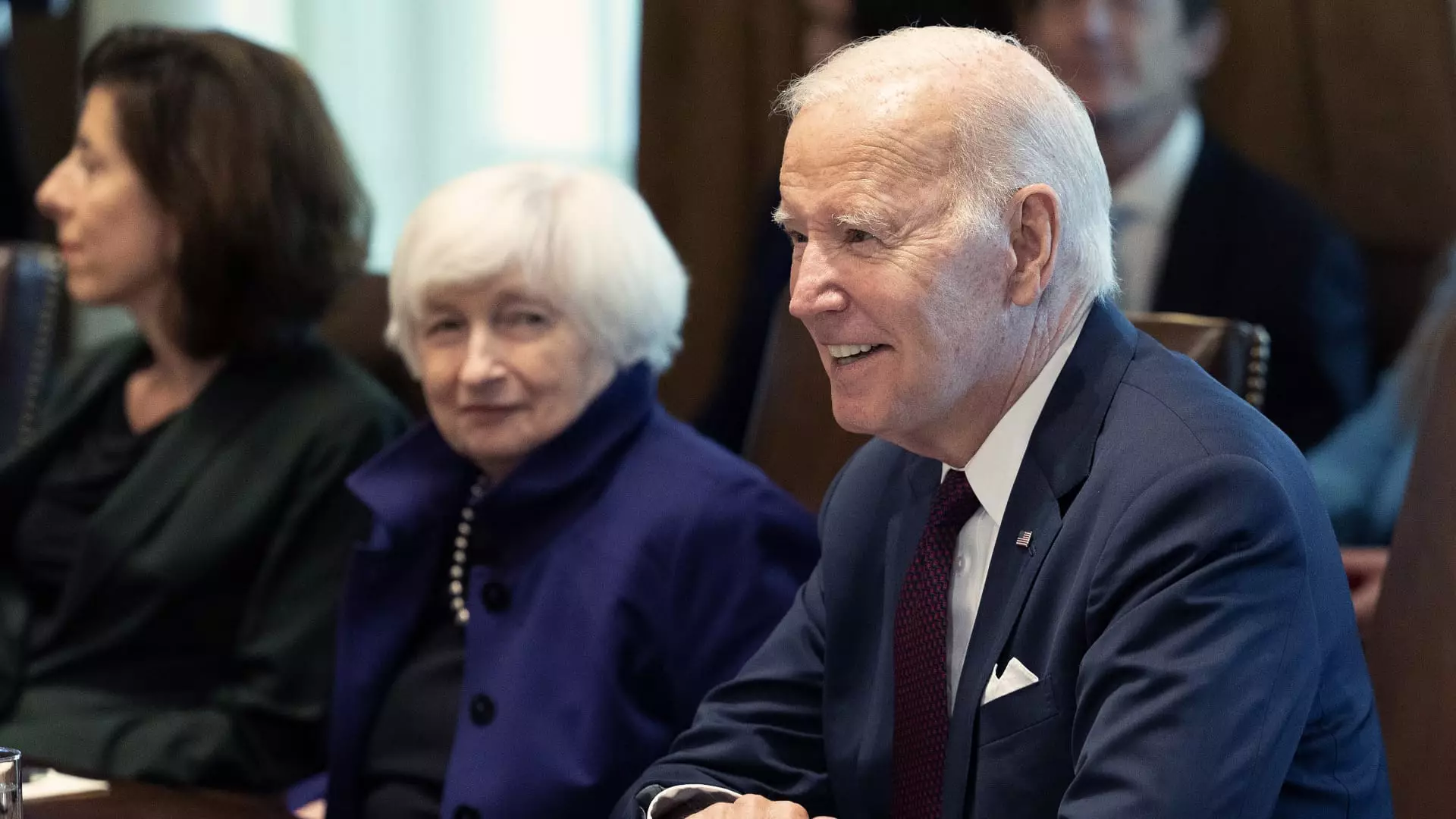In the dynamic landscape of American politics, the road to the upcoming presidential debate has taken on a critical significance for the Biden administration. With President Joe Biden preparing for a pivotal confrontation against former President Donald Trump, his Cabinet has embarked on an intensive two-week promotional tour aimed at highlighting the administration’s economic achievements. This strategic blitz is not merely a public relations effort; it reflects a calculated maneuver to bolster public perception of the economy as the stakes rise in the political arena.
Over the past fortnight, the Biden administration has organized 29 public events across 15 states, strategically targeting battleground regions crucial for electoral success, including Georgia, Nevada, Pennsylvania, and Michigan. Notable figures from the Cabinet, including Treasury Secretary Janet Yellen, National Economic Council Director Lael Brainard, and Transportation Secretary Pete Buttigieg, have played key roles in this extensive campaign to bring attention to the administration’s economic initiatives.
The breadth of the tour is indicative of a robust approach to engage directly with voters and recalibrate their perceptions of the economy. By showcasing positive economic indicators such as low unemployment rates and rising wages, the administration seeks to shift the narrative away from Republican critiques of inflation and economic turmoil. The trio of busy weeks serves as both a promotional platform for the administration’s achievements and a defensive maneuver against the mounting Republican rhetoric leading up to the highly anticipated debate.
One of the core focuses of the tour has been the articulation of specific policies aimed at reducing costs for Americans, particularly seniors. Domestic Policy Adviser Neera Tanden introduced a strategic initiative to cap out-of-pocket prescription medication expenses, targeting pharmaceutical companies that have raised drug prices at a rate surpassing inflation. This policy not only addresses the immediate financial burdens on elderly citizens but also positions the Biden administration as a protector against perceived corporate greed.
Furthermore, Secretary Yellen’s announcement of a $100 million affordable housing fund during her visit to Minnesota underscores the administration’s commitment to fostering economic accessibility. Yellen’s emphatic statement about the resilience of the American economy highlights the Biden administration’s aim to build a narrative of progress and stability, despite the continuous challenges posed by inflation and public skepticism.
Despite the administration’s positive messaging, there are underlying challenges in shaping the economic narrative. With consumer confidence reportedly waning and contributing to a sense of economic unease, the ongoing tour seeks not only to underscore Biden’s achievements but also to shift voter perceptions as the debate looms ever closer.
It is noteworthy that while officials robustly defend the successes of the Biden economic plan, they have consciously refrained from directly mentioning Trump or other Republican figures. This subtlety allows the administration to focus on its own narrative without inadvertently elevating the opposition’s standing in the eyes of voters. Instead, the responsibility of differentiating Biden’s policies from those of his predecessor falls on the campaign team, which has been busy crafting contrasts aimed at delineating their “dueling economic visions.”
The impending debate represents a critical juncture not only for the Biden administration but also for the national discourse surrounding economic policy. The administration’s efforts to frame its achievements are underpinned by a broader narrative that seeks to forge a connection with working families who may feel disillusioned by the current inflationary climate. As data on jobless claims and Gross Domestic Product is set to be released, the timing could provide a valuable boost or serve as a formidable challenge just before the debate.
As the Federal Reserve prepares to unveil crucial inflation measures, the intricacies of the economic argument will be put to the test in the political sphere. The stakes are high, and the administration’s ability to convincingly defend its economic policies will be pivotal in shaping voter perceptions leading up to the elections. The outcome of this momentous debate will not only influence individual candidate standings but may also redefine the trajectory of the ongoing economic dialogue in the United States. In this volatile and uncertain environment, the Biden administration is positioned to leverage its two-week tour as a testament to its achievements, while strategically navigating the challenges presented by both its political adversaries and the economic landscape.


Leave a Reply